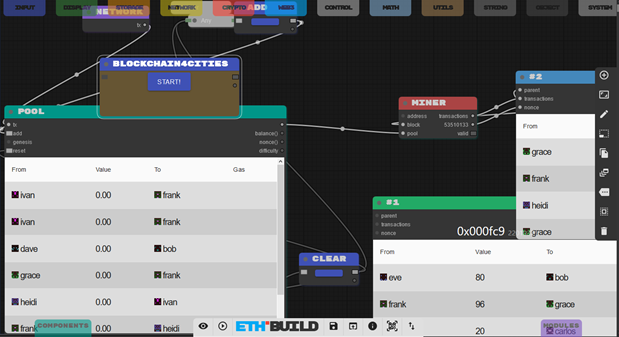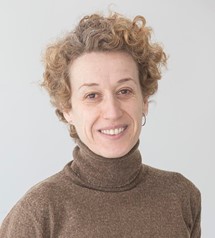Master in City & Technology 2020/21 – Term III
Seminar Name: Blockchain 4 Cities
Total Hours: 30 hours
Faculty: Lluïsa Marsal

Credits: designed using ETH Build
Abstract
The course aims to introduce the main concepts of blockchain in a city environment using an applied approach. It consists of 18 online sessions between 1 and 1,5 hours combining content lessons with practice. The first sessions will be to introduce the technological definition of blockchain specific to cities and will show some examples on methodologies and blockchain solutions that can already be found in cities and territories.
The course will continue by providing an understanding of the different urban codes currently shaping our cities these being Strategies, Policies, Planning, and Regulations but from a Cryptourbanomics perspective. Cryptourbanomics is a self-coined keyword to name a proprietary method aimed at exploring the blockchain laws in the urban context. These Cryptourbanomics sessions are shaped as innovation-discovery exercises in which students will shape a course project based on the use cases provided or any other concern of their own.
The Blockchain4Cities faculty understands and is sensible to the exceptional times we all live in and wants to use this as an opportunity for students to design projects that respond to the so called New Normal, since it is here to stay. A very recent book, The New Possible, outlines the challenges of this new reality. A selection of challenges relevant to the course have been extracted from the book and will be offered to students as potential project topics but without muting their own topic ideas.
The understanding of urban codes from a blockchain perspective, what the Cryptourbanomics method is for, will be combined with examples and blockchain technical resources to equip them with a practical vision of how a blockchain-based project would look line. Students will not be asked to code or develop blockchain architecture but a meaningful blockchain-based framework to help solve one of today’s challenges.
Faculty

Maria-Luisa Marsal Llacuna is an Architect (2001) with two Masters (2004, 2011) and two Doctorates (2008, 2013) in the fields of urban planning and applied ICT. She worked for the government in the UK and now in Catalunya, at the Government of Catalonia, Catalan Institute of Energy. Before working for public administrations, she spent fifteen years in the academia, in different research and leadership roles in public universities. Her academic career includes the creation and direction of world’s first official scientific master’s program in smart cities; several competitive and commercial research projects in the domains of smart and sustainable cities; postdoc scholarships in Germany (2006) and the USA (2011); a US patent on urban planning standards technology; and the publication as main author of about twenty papers in top peer-reviewed academic journals. She served as UN Habitat III expert and she held two mandates as a chair at UN’s U4SSC initiative, with her second term focused on exploring blockchain applications for cities. Her expertise on blockchain for governments has awarded her with the leadership of the Barcelona Chapter at the Government Blockchain Association (GBA) and participation in GBA’s leadership advisory committee.
